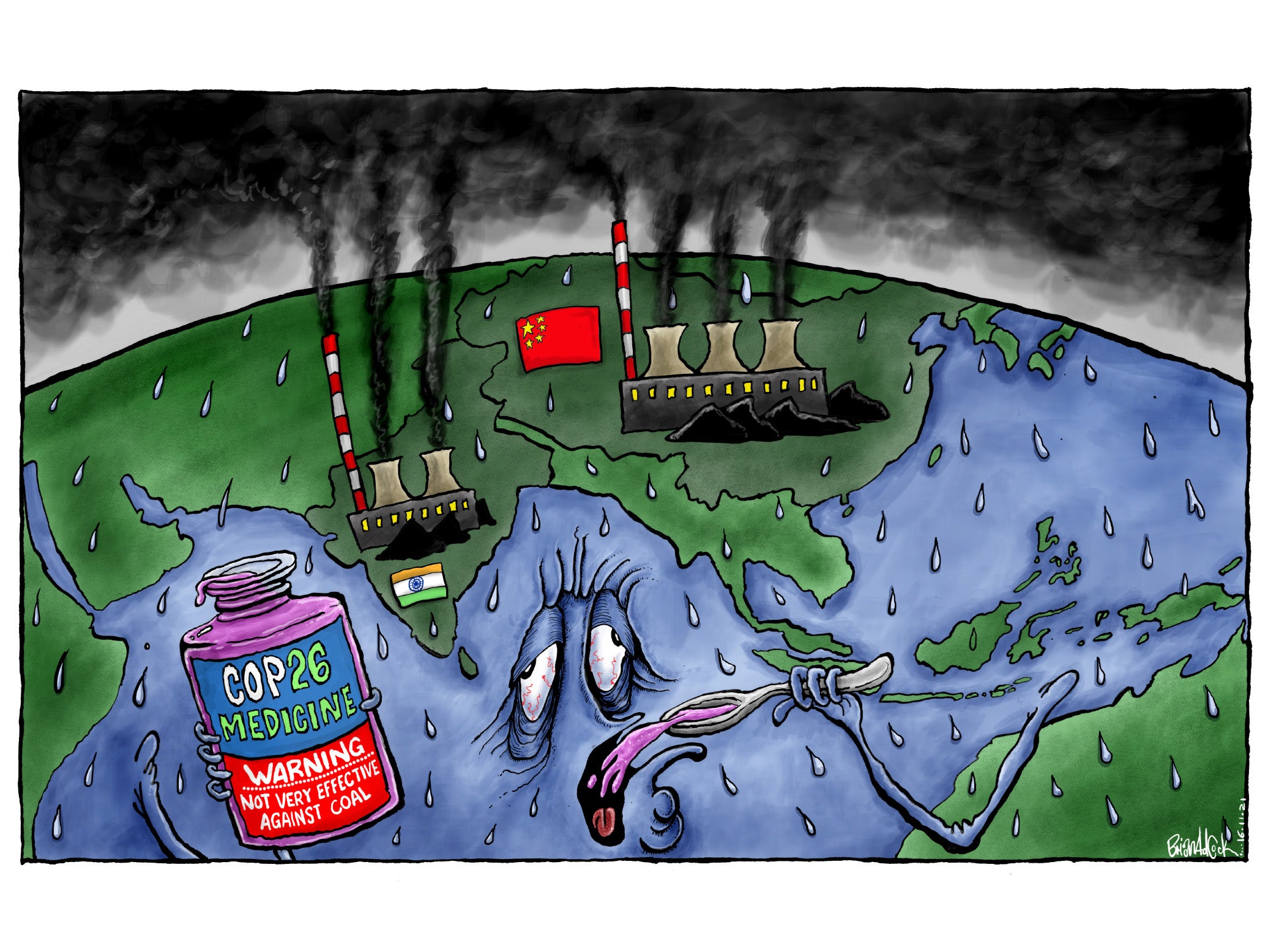A British prime minister gets up in his finery at the Lord Mayor’s Banquet and dilates on his foreign policy aims. Once upon a time, such a speech might be studied with great care in Washington and Moscow, Paris and Berlin, Beijing and Tokyo. There would be a top-level analysis, and even some trepidation.
Nowadays, it must be faced, fewer people are even listening. It is unlikely that, for example, Boris Johnson’s sub-Churchillian rhetoric will cause much loss of sleep for Vladimir Putin, or even Alexander Lukashenko, the despot of Minsk. Today, the British are not just scorned in places such as Tehran but, worse, ignored. Were it not for a debt the UK admits it owes Iran dating back to the Shah’s time, the British would be no more than pantomime villains there and in much of the world.
Hard work by British diplomats made Cop26 a relative success, but it was achieved in spite of Britain’s increasingly poor international reputation. Neither the presence of the prime minister, nor his absence in critical moments, made much difference.
The prime minister, to give him some credit, recognises the need to build alliances: “I believe this concept of coalitions coalescing around science and security and values and finance and diplomacy and, above all, people, should be at the heart of what Global Britain is doing,” he said on Monday evening.
“Because it is clear that some countries are simply not going to evolve towards free market democracies and we should be clear-eyed about that. We have to deal with it, we have to manage it, we must have relations that are as friendly and pragmatic as possible. But the consequence is that we work ever more closely with those who do share our values and instincts.”
The problem for Global Britain (at best a meaningless bit of boosterism) is that these partnerships are growing weaker, not stronger. Probably not since the end of the Cold War, and very possibly the end of the Second World War and the end of the British empire, could anyone talk about “Global Britain” with a straight face. The retreat from any significant military presence east of Suez was long and painful. As the famous quip by former US secretary of state Dean Acheson went, by the 1960s Britain had lost an empire but not yet found a role. The UK’s international role had been “about played out”.
Of course Britain soon found a role, and it was called Europe. Despite being a somewhat reluctant joiner and querulous member state, Britain exercised leadership on the single market and represented a transatlantic bridge. The UK was able to forge a unique position of diplomatic power at the intersection of three great overlapping circles – the so-called special relationship with the United States, especially in intelligence matters and exercised militarily through Nato; a leading role in the Commonwealth, including a developing India; and the EU, which lent economic heft and real meaning to threats of sanctions.
To keep up to speed with all the latest opinions and comment sign up to our free weekly Voices newsletter by clicking here
Through these interrelationships the British were able to “punch above their weight”, as Douglas Hurd, foreign secretary under Margaret Thatcher, used to boast. It is hardly necessary to point out the damage that a combination of Brexit and the Johnson premiership has inflicted on each of these. The Biden administration views Brexit and the UK’s intentions towards Ireland with deep suspicion. The Commonwealth resents the cuts to overseas aid, and evidently India doesn’t see the need to do Britain any special favours. Relations with France, a once close ally, are about as poor as they have been at any time since the Entente Cordiale of 1904. The Japanese, such important investors in European Britain, no longer trust the UK in the same way, after Brexit.
Big talk about artificial intelligence and super-computers, sending an aircraft carrier to wind up the Chinese, and slightly larger armed forces do not compensate for the loss of those considerable global-scale diplomatic assets.
Aukus, the nuclear-powered submarine pact with Australia and the United States, is a case in point. It is supposed, perhaps, to be the foundation stone on a new alliance of the Anglosphere. Even if it were – and the Anglosphere is not as “Anglo” as once it was – the British cannot be much more than bit part players in the Pacific region, for obvious reasons. In real terms, allowing for the vagaries of exchange rates, Britain is probably only the 10th largest economy in the world, a little behind France and Brazil and ahead of Turkey. As yet, pending the technological revolution about to be unleashed by the freedoms of Brexit and the government’s Advanced Research and Invention Agency, the UK has neither the industrial nor technological prowess to be a world power, fine as the armed services are.
The central reality behind diplomacy has almost always been an underlying economic strength. It was no accident that Britain grew to global greatness as the first industrial nation. What foundation is there for the great resurgence in global influence and power the prime minister promises?




Join our commenting forum
Join thought-provoking conversations, follow other Independent readers and see their replies
Comments